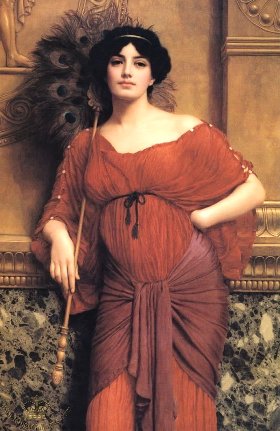 . . . David was the father of Solomon, whose mother had been Uriah’s wife . . . – Matthew 1:6 NIV
. . . David was the father of Solomon, whose mother had been Uriah’s wife . . . – Matthew 1:6 NIV
For my thoughts are not your thoughts, neither are your ways my ways, says the LORD. For as the heavens are higher than the earth, so are my ways higher than your ways, and my thoughts than your thoughts. – Isaiah 55:8–9
Although she’s one of five women having the honor of being in mentioned in Jesus’ genealogy, unlike the other four, Bathsheba’s name is not given. Matthew simply refers her to as “Uriah’s wife.”
In my humble opinion, she’s worse than Tamar and Rahab. She can’t even hold a candle to Ruth, whose story is like a polished diamond in the coal mines of the Old Testament. They had what Bathsheba lacked— brains, guts and heart.
When we first encounter Bathsheba, she’s taking a bath—in an uncovered courtyard of a house in the middle of Jerusalem, where anyone standing on a nearby rooftop (they were flat in those days) could see her. Perhaps that was her intention. You see, the courtyard where she was bathing was in plain sight of the rooftop of King David’s residence. Scripture tells us Bathsheba was very beautiful.
Now King David already had seven wives, including Saul’s daughter Michal, the wife of his youth, and Abigail, the spunky, quick-witted widow of Nabal. (Read this great story in 1 Samuel 25.) Nevertheless, he summons Bathsheba, knowing both her husband and her father were members of the elite group of warriors known as “David’s mighty men.”
She could have said no. She knew the commandments as well as King David did. But she didn’t.
You know the story. David arranges for Uriah’s death in battle. As soon the seven days of mourning for her husband are up, Bathsheba marries King David. The baby conceived in adultery dies soon after birth.
Fast forward to the end of David’s life. As he lay on his deathbed, his son Adonijah plans to usurp the throne. David’s chief prophet approaches Bathsheba with a plan.
“Go in to King David and say to him, ‘Didn’t you promise me my son Solomon would be king after you? Then why has Adonijah become king?’”
She does as told. Solomon is crowned that very day (1 Kings 1:11–39). Okay, so she secured the throne for the king God had planned. But it wasn’t her idea.
The last time we see Bathsheba, she’s the queen mother. The relentless Adonijah uses her in a plot to wrest the throne from Solomon.
“Ask him to do one thing for me,” Adonijah tells her. “Give me Abishag the Shunammite as my wife.”
“Very well,” she says, clueless what this meant.
She should have known. Abishag was a part of David’s harem, and possession of the previous king’s harem signified the right of succession to the throne. By marrying Abishag, Adonijah would strengthen his claim to the throne. Good thing Solomon saw through the scheme.
Bathsheba possessed great physical beauty but little else. If it had been up to me, I would have chosen Abigail, who had more character, intelligence and spunk, for the honor of being an ancestor of the Messiah.
But God didn’t ask for my opinion.
Bathsheba bore David four sons, which included Solomon and Nathan. The wise and wealthy Solomon became one of Jesus’ ancestors through Joseph, his earthly father. Nathan’s line produced Mary, Jesus’ mother (Luke 3:31).
Bathsheba—bathing beauty or bimbo? Does it even matter?
What matters is that God chose her, not because of anything she did, but because of His own purpose and grace (2 Timothy 1:9) to fulfill a promise He made to David: “Your house and your kingdom will endure forever before me; your throne will be established forever” (2 Samuel 7:16).
This promise was fulfilled with Jesus’ birth, death and resurrection.
Bathsheba’s story is one of mercy and grace. Mercy, because she didn’t get the punishment she deserved for her adultery and her part in David’s conspiracy to murder her husband. Grace, because she received something she didn’t deserve—a place in the bloodline of Jesus Christ.
Mercy and grace—isn’t that what God’s all about?
“Thy steadfast love, O LORD, extends to the heavens, thy faithfulness to the clouds”( Psalm 36:5). Remind me of this, dear God, when I question Your love for and Your faithfulness to me. Amen.
Read and reflect on 2 Samuel 11:1–12:24.
From God, Me, & a Cup of Tea for the Seasons © 2018 Michele Huey. All rights reserved. Used with permission.


If I remember correctly–I researched this once–Bathsheba’s dad was one of David’s men when they were all on the run hiding from Saul. I imagine Bathsheba grew up idolizing David and then her dad marries her off to Uriah. Not that her situation excuses her behavior. It just makes me view her with more sympathy.
LikeLike
I hadn’t thought of that. But I still have trouble dredging up any sympathy for her. Maybe if I’d lived back then and understood the culture … Thanks for taking the time to comment, Roberta. I know you know and understand Bible history much, much better than I do.
LikeLike